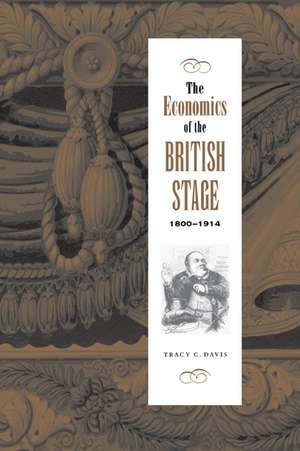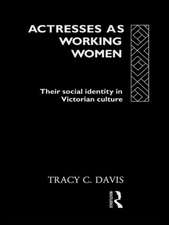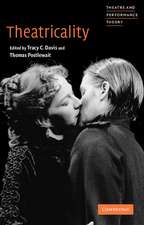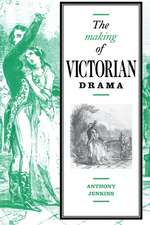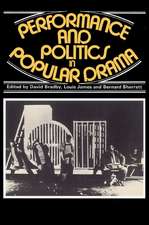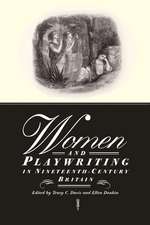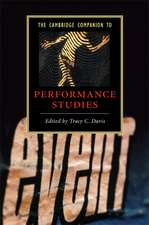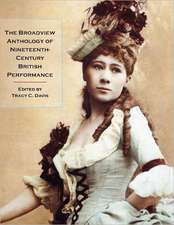The Economics of the British Stage 1800–1914
Autor Tracy C. Davisen Limba Engleză Paperback – 20 iun 2007
| Toate formatele și edițiile | Preț | Express |
|---|---|---|
| Paperback (1) | 439.13 lei 6-8 săpt. | |
| Cambridge University Press – 20 iun 2007 | 439.13 lei 6-8 săpt. | |
| Hardback (1) | 875.35 lei 6-8 săpt. | |
| Cambridge University Press – 29 noi 2000 | 875.35 lei 6-8 săpt. |
Preț: 439.13 lei
Nou
Puncte Express: 659
Preț estimativ în valută:
84.05€ • 87.41$ • 70.43£
84.05€ • 87.41$ • 70.43£
Carte tipărită la comandă
Livrare economică 13-27 martie
Preluare comenzi: 021 569.72.76
Specificații
ISBN-13: 9780521036856
ISBN-10: 0521036852
Pagini: 528
Ilustrații: 17 b/w illus. 29 tables
Dimensiuni: 153 x 229 x 30 mm
Greutate: 0.77 kg
Editura: Cambridge University Press
Colecția Cambridge University Press
Locul publicării:Cambridge, United Kingdom
ISBN-10: 0521036852
Pagini: 528
Ilustrații: 17 b/w illus. 29 tables
Dimensiuni: 153 x 229 x 30 mm
Greutate: 0.77 kg
Editura: Cambridge University Press
Colecția Cambridge University Press
Locul publicării:Cambridge, United Kingdom
Cuprins
List of illustrations; List of figures; Acknowledgements; Abbreviations; Note to readers; Introduction; Part I. Competition: Theatre and Laissez-Faire: 1. Monopoly and free trade: fair and unfair competition; 2. Property and the stakes of private interest; 3. Industrial regulation and safety; 4. Marginal economics, national interest and the half-naked woman; Part II. Ownership and Entrepreneurialism: 5. Opportunity, finance and failure; 6. Profit; 7. Business structures; 8. Gender, 'gentlemanly capitalism' and the wo-manager; Part III. Industrialization, Commodity Capitalism and Theatre Production Systems: 9. Labour and labourers; 10. Theatre as cultural capital; Appendix: 'To the public. Charles Kemble's mercies or the '999' increasing'; Notes; Bibliography; Index.
Recenzii
"[A]n immensely accomplished work of theatre history." Essays in Theatre
"Copious, precise, and palpable, Davis's scholarly labors--the scene of her writing--become the scrim through which to encounter the economic conditions in which British theatre was produced between the years 1800 and 1914." Theatre Journal
"This book will appeal to historians of the theater and of media studies; its focus on the theater as an industry adds a new dimension. The author brings very useful statistics to illuminate the study of costs. The book will also make fascinating reading for social and cultural historians." EH.NET
"Copious, precise, and palpable, Davis's scholarly labors--the scene of her writing--become the scrim through which to encounter the economic conditions in which British theatre was produced between the years 1800 and 1914." Theatre Journal
"This book will appeal to historians of the theater and of media studies; its focus on the theater as an industry adds a new dimension. The author brings very useful statistics to illuminate the study of costs. The book will also make fascinating reading for social and cultural historians." EH.NET
Descriere
A comprehensive study of economic theory in relation to the development of nineteenth-century British theatre.
